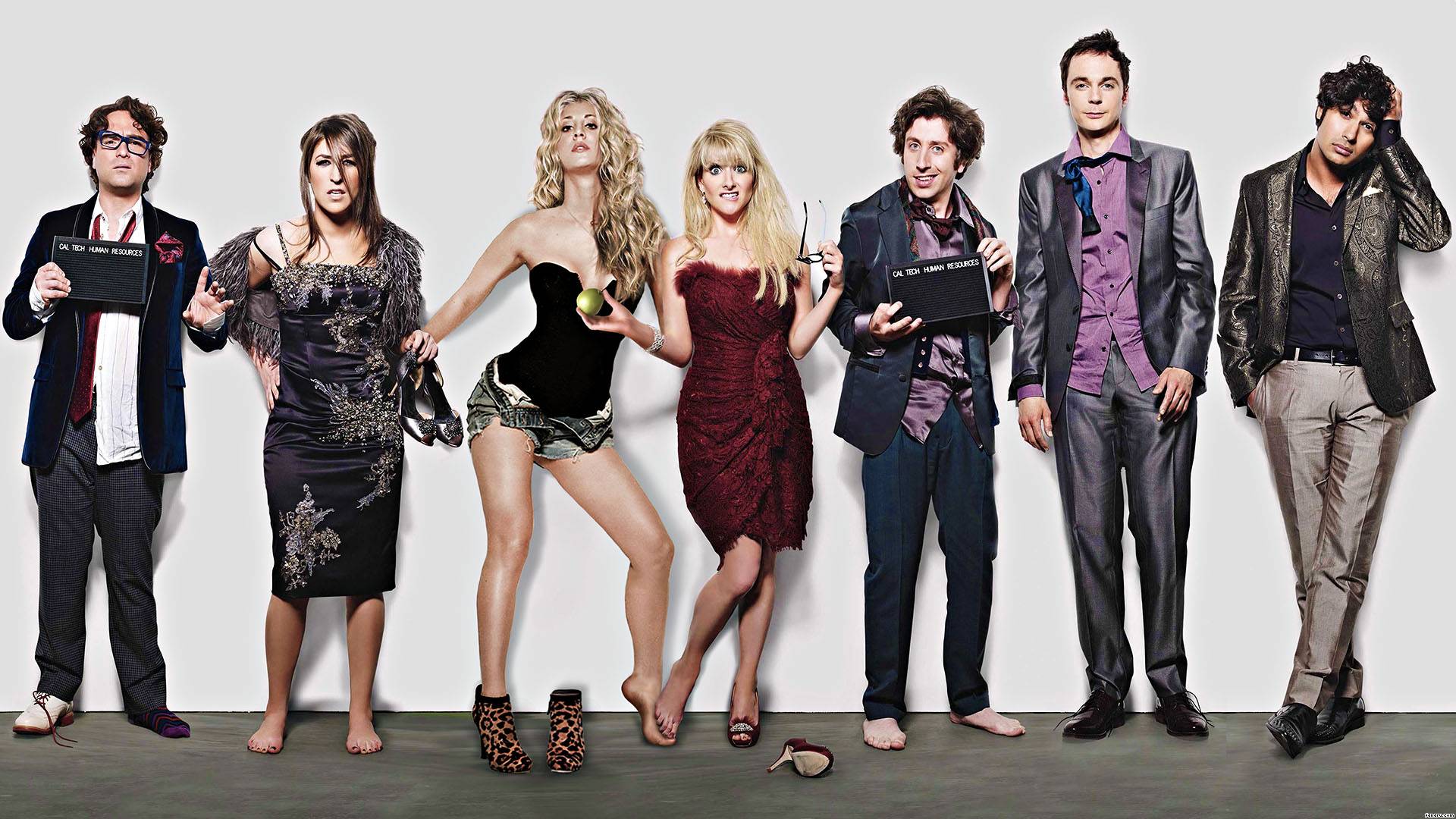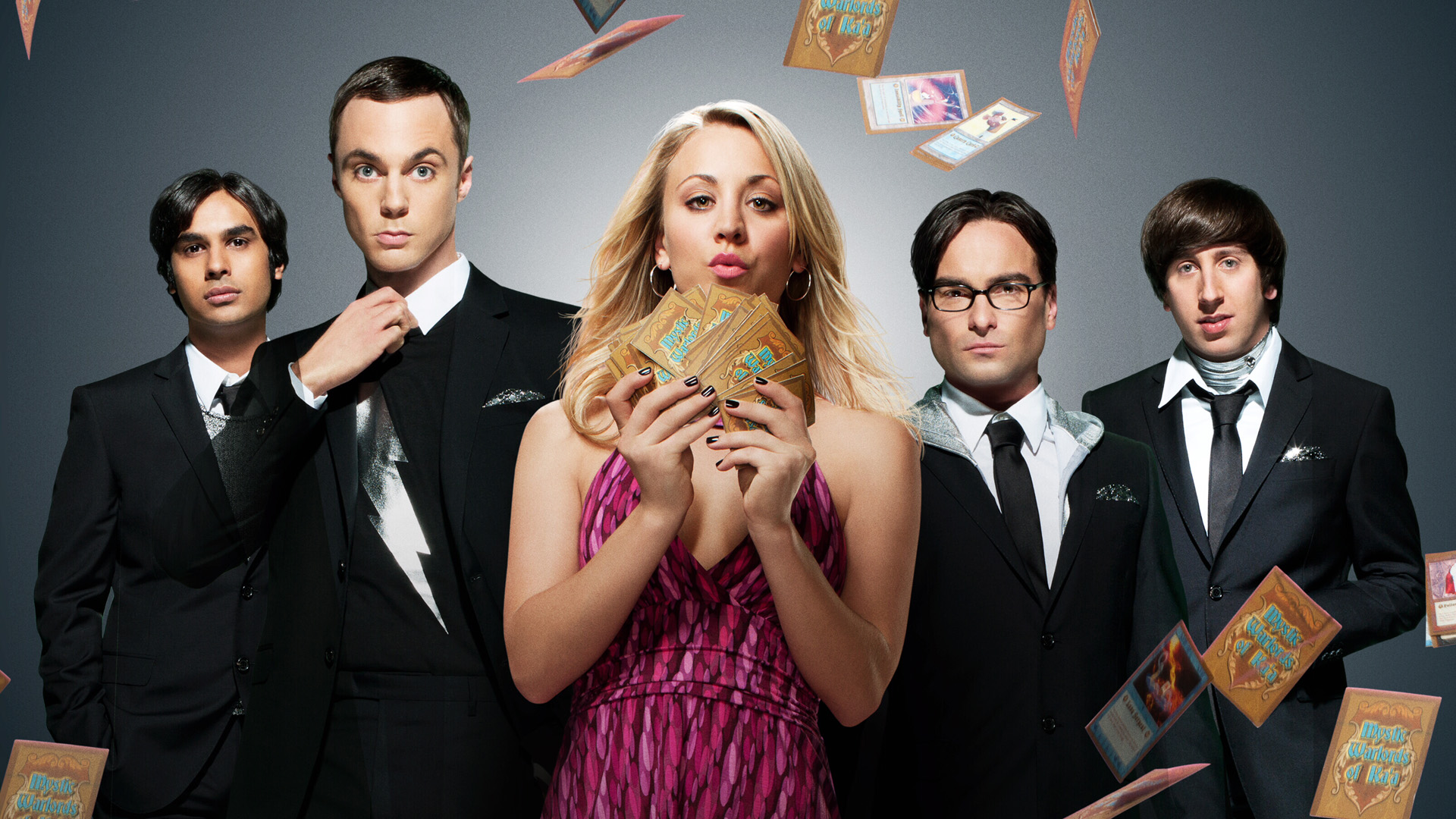The Big Bang Theory: A Comprehensive Guide To The Iconic Sitcom
Step into the world of "The Big Bang Theory," where science meets comedy in an unforgettable way. This groundbreaking sitcom has captured the hearts of millions globally, blending humor with intellectual curiosity. As one of the most celebrated TV series of all time, its impact on pop culture is undeniable.
Since its debut in 2007, "The Big Bang Theory" has redefined the sitcom genre by showcasing the lives of socially awkward yet brilliant scientists. Created by Chuck Lorre and Bill Prady, the show masterfully combines relatable situations with scientific references, making it accessible to audiences from all walks of life.
In this article, we'll explore the show's origins, characters, cultural impact, and why it continues to resonate with viewers worldwide. Whether you're a die-hard fan or new to the series, this guide will provide a deep dive into what makes "The Big Bang Theory" a timeless classic.
Read also:Is Obamas Wife A Man Unpacking The Controversy And Truth
Table of Contents
- The Origin of The Big Bang Theory
- Main Characters and Their Evolution
- Science in The Big Bang Theory
- Cultural Impact and Legacy
- Behind the Scenes of Production
- Audience Reception and Ratings
- Spin-offs and Future Projects
- Awards and Recognition
- Iconic Quotes and Memorable Moments
- Conclusion: Why The Big Bang Theory Matters
The Origin of The Big Bang Theory
Before becoming a global phenomenon, "The Big Bang Theory" was born out of the creators' desire to bring a fresh perspective to television. Chuck Lorre and Bill Prady aimed to create a sitcom that celebrated intellectual pursuits while addressing universal themes like friendship and relationships.
Initially pitched as a show about two socially awkward physicists living next door to a beautiful woman, the concept evolved into a rich tapestry of characters and storylines. The pilot episode aired on CBS in 2007, introducing viewers to Sheldon Cooper, Leonard Hofstadter, and their unique world.
Development Process
During development, the creators faced challenges in balancing humor with scientific accuracy. They consulted experts to ensure the show's portrayal of science was authentic without alienating casual viewers. This commitment to detail set "The Big Bang Theory" apart from other sitcoms.
- Initial concept focused on two physicists
- Expanded to include additional characters and storylines
- Incorporated scientific elements authentically
Main Characters and Their Evolution
At the heart of "The Big Bang Theory" lies a diverse cast of characters whose personalities and interactions drive the show's humor and drama. Each character brings something unique to the table, making the ensemble one of the most beloved in television history.
Key Characters
Sheldon Cooper, Leonard Hofstadter, Howard Wolowitz, Raj Koothrappali, Penny, Bernadette Rostenkowski, Amy Farrah Fowler, and Emily Sweeney form the core group. Their relationships and personal growth throughout the series provide endless entertainment.
| Name | Profession | Personality Traits |
|---|---|---|
| Sheldon Cooper | Theoretical Physicist | Highly intelligent, rigid, and eccentric |
| Leonard Hofstadter | Experimental Physicist | Warm, empathetic, and grounded |
| Howard Wolowitz | Aerospace Engineer | Charismatic, ambitious, and humorous |
| Raj Koothrappali | Astrophysicist | Shy, romantic, and culturally diverse |
Science in The Big Bang Theory
One of the defining features of "The Big Bang Theory" is its integration of science into everyday scenarios. The show frequently references complex theories, experiments, and discoveries, often explained in humorous ways.
Read also:How Once Human Eliminate Luminaras A Comprehensive Guide
Scientific References
From quantum mechanics to astrophysics, the series covers a wide range of topics. Experts like David Saltzberg, a UCLA physicist, ensure the scientific content is accurate and engaging. This approach not only entertains but also educates viewers about the wonders of science.
- Quantum entanglement
- String theory
- Black holes
Cultural Impact and Legacy
"The Big Bang Theory" has left an indelible mark on popular culture, influencing how science and scientists are perceived in media. By humanizing nerds and geeks, the show helped break stereotypes and promote inclusivity.
Impact on Pop Culture
Its success spawned merchandise, fan conventions, and even educational initiatives. The show's portrayal of diverse characters also contributed to greater representation in the entertainment industry.
According to a study published in the Journal of Popular Culture, "The Big Bang Theory" played a significant role in normalizing STEM careers among younger audiences.
Behind the Scenes of Production
The production process of "The Big Bang Theory" involved meticulous planning and collaboration among writers, directors, and cast members. Each episode required careful scripting to maintain the show's signature balance of humor and heart.
Production Techniques
Using a live studio audience, the show captured genuine reactions that enhanced its comedic timing. Additionally, the use of practical effects and props added authenticity to scientific scenes.
- Live studio audience for better engagement
- Collaboration with scientific consultants
- Innovative set designs
Audience Reception and Ratings
From its first season, "The Big Bang Theory" garnered critical acclaim and massive viewership. Its ability to connect with diverse audiences across age groups and demographics solidified its status as a cultural phenomenon.
Ratings and Reviews
Throughout its run, the show consistently ranked among the top-rated sitcoms on television. Critics praised its witty dialogue, character development, and ability to tackle serious issues with sensitivity.
Data from Nielsen ratings indicates that "The Big Bang Theory" averaged over 20 million viewers per episode during its peak years.
Spin-offs and Future Projects
The success of "The Big Bang Theory" led to the creation of spin-offs, most notably "Young Sheldon." This prequel series explores Sheldon Cooper's childhood and early years, expanding the universe of the original show.
Future Plans
Creators have hinted at potential new projects that delve deeper into the lives of other characters. Fans eagerly await announcements about upcoming ventures that continue the legacy of this iconic series.
Awards and Recognition
Over the years, "The Big Bang Theory" has received numerous accolades for its outstanding contributions to television. Its cast and crew have been honored with prestigious awards, reflecting the show's impact on the industry.
Notable Awards
- Emmy Awards for Outstanding Comedy Series
- Golden Globe nominations
- SAG Awards for ensemble performances
Iconic Quotes and Memorable Moments
No discussion of "The Big Bang Theory" would be complete without mentioning its memorable quotes and scenes. These moments have become part of pop culture folklore, resonating with fans worldwide.
Unforgettable Lines
- "Bazinga!" - Sheldon Cooper
- "You're welcome." - Howard Wolowitz
- "Are you insinuating that I have a weight problem?" - Penny
Conclusion: Why The Big Bang Theory Matters
In conclusion, "The Big Bang Theory" remains a testament to the power of storytelling combined with intellectual curiosity. Its ability to entertain while educating has made it a beloved classic that continues to inspire new generations.
We invite you to share your thoughts and favorite moments in the comments below. For more insightful articles on pop culture and entertainment, explore our other content and stay updated on the latest trends shaping the world of television.


